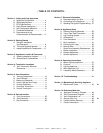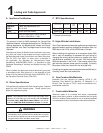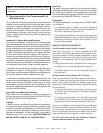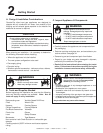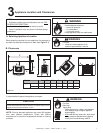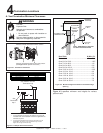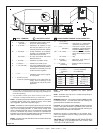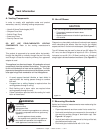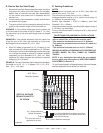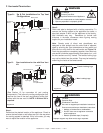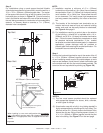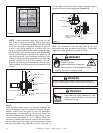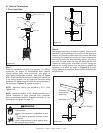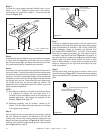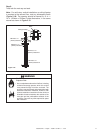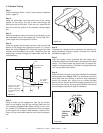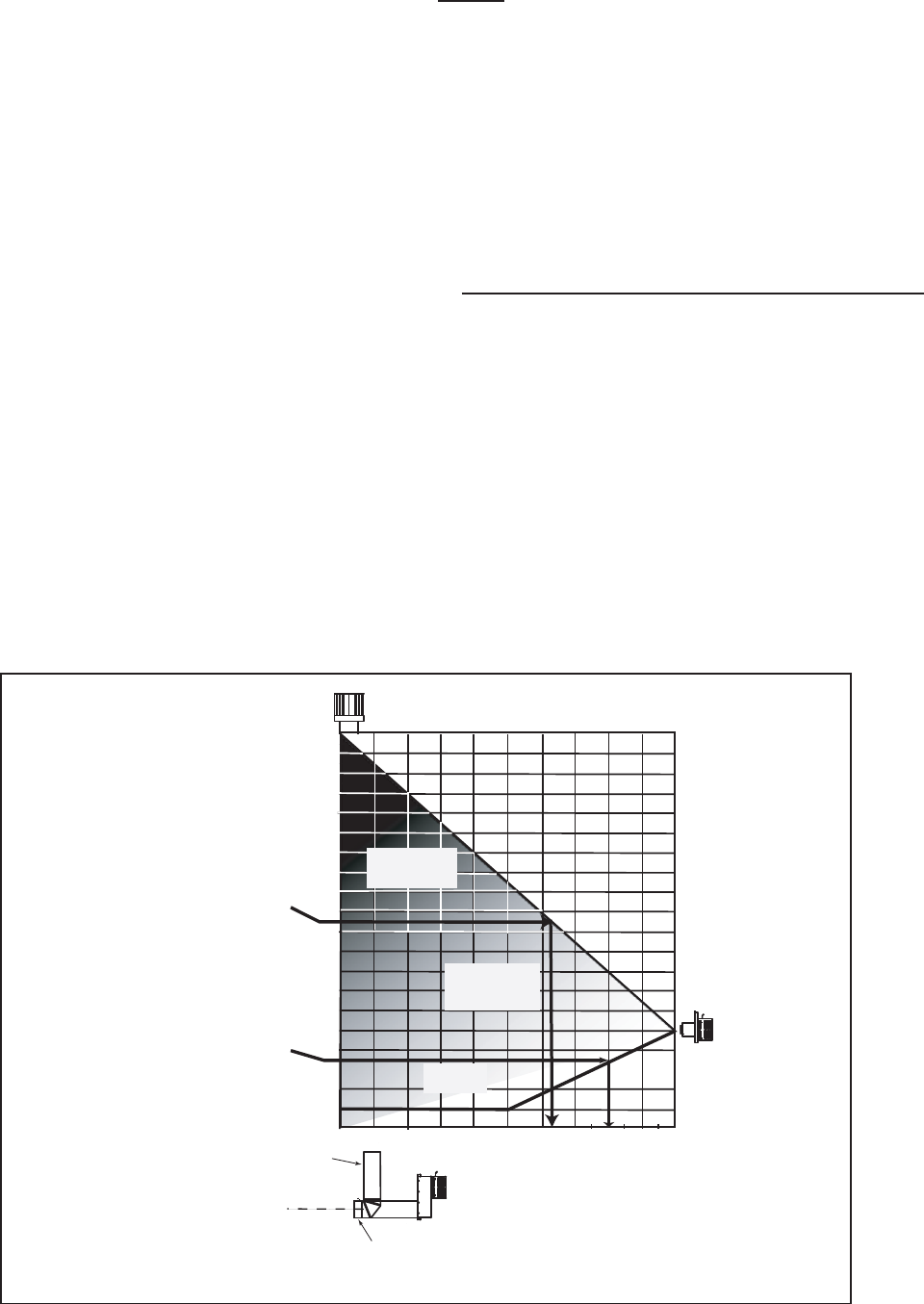
11
Quadra-Fire • Topaz • 7009-113 Rev. J • 12/11
D. How to Use the Vent Graph E. Venting Guidelines
1. Measure the vertical distance from the center line of the
flue pipe to the center of the 90° elbow. On the graph
below, draw a horizontal line from that measurement
on the vertical axis across until it intersects with the
slanted line.
2. From the point of this intersection, draw a vertical line to
the bottom of the graph.
3. The point at which this line meets the bottom line of the
graph is the maximum length of the horizontal run.
EXAMPLE 1: If the vertical dimension from the center line
of the fl ue vent to the center of the 90° elbow is 7 ft. (2m),
the horizontal run to the outer wall fl ange must not exceed
16 ft. (5m).
EXAMPLE 2: If the vertical dimension from the center line
of the fl ue vent is 21ft. (6m), the horizontal run to the outer
wall fl ange must not exceed 12 ft. 10 in. (4m).
4. Each 90° elbow is equivalent to 3 ft. (914mm) of vent
pipe and each 45° elbow is equivalent to 1ft. (305mm)
of vent pipe, and must be subtracted from the vent pipe
run. A single horizontal to vertical 90° elbow is already
calculated into the allowable 20 ft. (6m) run. Each
additional 90° elbow reduces the maximum horizontal
distance by 3 ft. (914mm).
EXAMPLE: The use of 3 elbows would reduce the allowable
horizontal run to 9 ft. (3 -1 = 2 elbows x 3 ft. = 6 ft.; 20 ft.
max. - 6 ft. = 14 ft. max.).
NOTES
The maximum horizontal vent run is 20 ft. (6m) when the
vertical vent rise is 10 ft. (3m).
The minimum horizontal vent run is 6 in. (152mm)
Horizontal sections require a 1/4 in. (6mm) rise for every 12
in. (305mm) of horizontal travel.
Exterior Vent Diameter = 6-5/8 in. (168mm); Inner Vent
Diameter = 4 in. (102mm).
Horizontal sections require noncombustible support every 3
ft. (914mm), e.g. wall straps.
For any vertical termination a minimum of 6 ft. (2m) vertical
must be used.
EXCEPTIONS FOR HORIZONTAL INSTALLATIONS:
*When installing the Topaz in a rear vent configuration
with no vertical rise, a Snorkel Kit must be used.
*The maximum horizontal vent run is 3 ft. (914mm).
*The maximum horizontal vent run with a 45° elbow is 2
ft. (609mm).
*The minimum horizontal vent run is 6 in. (152mm).
NOTE: If your installation falls within the gray-shaded
area on graph, see information on VERTICAL DAMPER
ADJUSTMENT in Section 8.
INDIVIDUAL INSTALLATIONS MAY VARY. PERCENTAGE
CLOSED BASED ON FULL RANGE OF DAMPER
TRAVEL.
*In the Commonwealth of Massachusetts, the word damper
shall be replaced with the words flue restrictor.
Example 1
Example 2
2' 4' 6 ' 8' 10' 12' 14' 15' 16' 17' 18' 19' 20'
2'
4'
6'
8'
10'
12
'
14'
16'
18'
20'
22'
24'
26'
28'
30'
32'
34'
35'
36'
37'
38'
39'
40'
Damper position
more CLOSED in
this area
C
L
40 ft. (12m)
Maximum Vertical
VERTICAL DISTANCE
FROM APPLIANCE TO
90
° ELBOW
6 in. (152mm) Minimum
Vertical Termination
For rear vent or top of
appliance for top vent
C
L
6 in. (152mm) Minimum starter pipe
3 ft. (914mm) Maximum Horizontal run with no
vertical pipe and with 1/4 in (6mm) rise per foot.
Must use Snorkel cap.
No damper
in this area
Damper position
more OPEN in
this area
Figure 5.2



